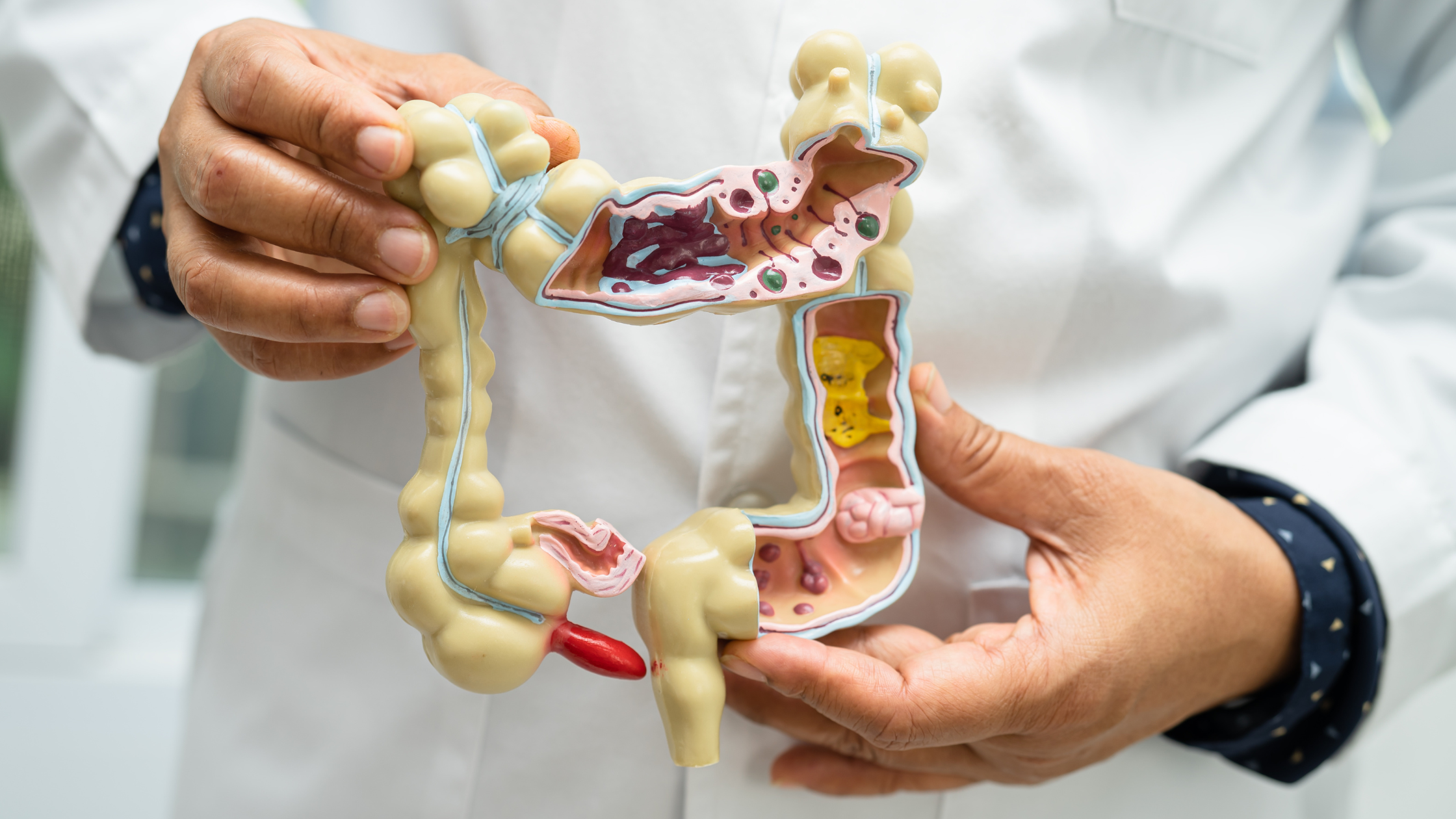
The Science Behind Probiotic Strains: Which One Is Right for You?
Table of Contents
Understanding Probiotics and Gut Health
Probiotics are beneficial bacteria that play a crucial role in maintaining a healthy gut microbiome. The gut is home to trillions of microorganisms that impact digestion, immunity, mood, and overall well-being. When balanced, these bacteria support nutrient absorption, immune function, and gut integrity. However, stress, diet, antibiotics, and environmental factors can disrupt this delicate balance, leading to digestive discomfort, weakened immunity, and other health concerns.
Probiotic supplements contain specific strains of beneficial bacteria that help restore and maintain a balanced gut microbiome. However, with so many strains available, it’s essential to understand which probiotic is right for your individual needs.
This guide explores the different probiotic strains, their health benefits, and how to choose the right supplement for optimal gut health.
How Probiotics Work in the Body
Probiotics work by introducing beneficial bacteria into the gut, helping to balance and support digestive and immune functions. Here’s how they contribute to overall wellness:
1. Restoring Gut Microbial Balance
When the gut microbiome becomes imbalanced, harmful bacteria can outnumber beneficial ones. This can result in digestive discomfort, bloating, irregularity, and weakened immunity. Probiotics help repopulate the gut with healthy bacteria, restoring balance and function.
2. Supporting Digestive Enzyme Production
Certain probiotic strains aid in the breakdown of complex carbohydrates, proteins, and fats, improving digestion and nutrient absorption. This can be especially beneficial for those with food intolerances or digestive sensitivities.
3. Strengthening the Immune System
About 70% of the immune system resides in the gut, and probiotics help regulate immune responses by promoting the growth of protective bacteria. Research shows that specific probiotic strains may help support immune resilience (PubMed Study).
4. Enhancing Gut Barrier Integrity
The gut lining acts as a protective barrier, preventing harmful substances from entering the bloodstream. Probiotics help maintain intestinal wall integrity, reducing the risk of digestive disturbances.
5. Supporting Mood and Brain Health
The gut and brain are connected through the gut-brain axis, and certain probiotics have been studied for their potential role in mood regulation and cognitive function. Some strains help produce neurotransmitters like serotonin and GABA, which support mental well-being (PubMed Study).
Different Types of Probiotic Strains
Not all probiotics are the same. Different strains offer unique benefits for digestion, immunity, and overall health. Here are the most well-researched probiotic strains and their specific roles:
1. Lactobacillus Strains
Lactobacillus is one of the most commonly used probiotic genera, known for its ability to support digestion and immune health. It is naturally found in fermented foods like yogurt, kefir, and sauerkraut.
- Lactobacillus acidophilus: Supports gut balance, helps break down lactose, and contributes to immune function.
- Lactobacillus rhamnosus: Known for its ability to support gut barrier integrity and may help with occasional digestive discomfort.
- Lactobacillus reuteri: Has been studied for its role in supporting oral health, digestion, and microbial balance.
2. Bifidobacterium Strains
Bifidobacterium strains are abundant in the large intestine and play a key role in gut homeostasis and immune modulation.
- Bifidobacterium bifidum: Helps maintain gut microbial balance and supports immune function.
- Bifidobacterium longum: Known for its ability to support digestive comfort and cognitive health (PubMed Study).
- Bifidobacterium breve: May help support intestinal flora diversity and maintain healthy digestion.
3. Saccharomyces Boulardii
Saccharomyces boulardii is a beneficial yeast that is used as a probiotic. It is well-known for its role in supporting gut resilience, especially after antibiotic use.
Research suggests that S. boulardii may help maintain digestive balance and support immune function during occasional gut disturbances (PubMed Study).
4. Streptococcus Thermophilus
Streptococcus thermophilus is commonly found in fermented dairy products and plays a role in lactose digestion. This strain produces lactic acid, which contributes to microbial balance in the gut.
5. Spore-Based Probiotics (Bacillus Strains)
Spore-forming probiotics such as Bacillus subtilis and Bacillus coagulans are highly resilient and can survive harsh stomach acid, making them effective for gut microbiome restoration and immune support.
Research indicates that Bacillus strains may promote gut flora balance and digestive health (PubMed Study).
How to Choose the Right Probiotic for Your Needs
With so many probiotic strains available, selecting the right one depends on your specific health goals. Here’s a guide to choosing the best probiotic based on your needs:
For Digestive Support
If you experience bloating, irregularity, or digestive discomfort, look for a probiotic containing:
- Lactobacillus acidophilus – Supports digestion and microbial balance.
- Bifidobacterium longum – Helps maintain gut regularity.
- Bacillus subtilis – Resilient spore-based strain that aids digestion.
For Immune Health
To support immune function, select probiotics with:
- Lactobacillus rhamnosus – Helps modulate the immune response.
- Bifidobacterium bifidum – Supports a balanced gut microbiome.
- Saccharomyces boulardii – Helps maintain immune resilience.
For Mood and Cognitive Health
If you’re looking for probiotics to support mood and cognitive function, consider:
- Bifidobacterium longum – Studied for its role in stress regulation.
- Lactobacillus reuteri – May help support neurotransmitter balance.
For Travel and Antibiotic Recovery
To help maintain gut balance while traveling or after antibiotic use, look for:
- Saccharomyces boulardii – Supports gut resilience.
- Bacillus coagulans – A spore-forming probiotic that survives extreme conditions.
For Lactose Digestion
If you have difficulty digesting dairy, probiotics like Lactobacillus acidophilus and Streptococcus thermophilus may help support lactose breakdown.
Key Health Benefits of Probiotics
Probiotics offer a wide range of health benefits beyond digestion. From supporting immune function to influencing mental well-being, these beneficial bacteria contribute to overall health in multiple ways.
1. Supports Digestive Health
One of the most well-known benefits of probiotics is their ability to support gut function and digestive comfort. Studies suggest that probiotics can help promote regularity, ease occasional bloating, and improve digestion.
Probiotics such as Lactobacillus acidophilus and Bifidobacterium longum play a key role in maintaining gut microbial balance and enhancing nutrient absorption (PubMed Study).
2. Strengthens the Immune System
Since a significant portion of the immune system is located in the gut, probiotics influence immune responses and promote a balanced inflammatory response. Strains like Lactobacillus rhamnosus and Bifidobacterium bifidum have been shown to support immune resilience by enhancing the activity of immune cells.
Research suggests that probiotics may help maintain upper respiratory health and support overall immune function (PubMed Study).
3. Supports Mood and Mental Health
Probiotics contribute to mental well-being through the gut-brain axis, a communication pathway between the gut and the brain. Certain strains, like Bifidobacterium longum and Lactobacillus reuteri, are involved in neurotransmitter production, influencing serotonin and dopamine levels.
Studies indicate that probiotics may support mood balance, cognitive function, and stress resilience (PubMed Study).
4. Supports Weight Management
Emerging research suggests that probiotics play a role in metabolism and body weight regulation. Some probiotic strains, such as Lactobacillus gasseri, have been studied for their potential effects on weight maintenance and fat metabolism.
5. Helps Maintain Vaginal and Urinary Health
Probiotics also support women’s health by maintaining vaginal microbiome balance. Lactobacillus crispatus and Lactobacillus rhamnosus are known to promote vaginal and urinary tract health, supporting microbial balance in these areas.
6. May Support Skin Health
The gut and skin are closely connected, and probiotics may help maintain a balanced inflammatory response in the skin. Some research indicates that probiotics like Lactobacillus rhamnosus and Bifidobacterium breve may help promote clear and balanced skin.
7. Supports Recovery After Antibiotic Use
Antibiotics can disrupt the gut microbiome by reducing both harmful and beneficial bacteria. Taking probiotics after a course of antibiotics can help repopulate the gut with healthy bacteria and restore microbial balance.
Saccharomyces boulardii and Lactobacillus reuteri are particularly effective in supporting gut recovery post-antibiotic use (PubMed Study).
Frequently Asked Questions
1. How long does it take for probiotics to work?
The effects of probiotics vary based on the strain, dosage, and individual gut health. Some people notice improvements in digestion and bloating within a few days, while others may take several weeks to see significant benefits. For long-term gut health, consistency is key.
2. Can I take probiotics every day?
Yes, probiotics are generally safe for daily use. Many experts recommend taking probiotics consistently to support microbial balance and digestive health. However, choosing the right strain and dosage is important for best results.
3. Should I take probiotics with food or on an empty stomach?
Probiotics tend to survive better when taken with food, especially meals that contain healthy fats. This helps improve the survival rate of bacteria as they pass through the stomach and into the intestines.
4. Do probiotics need to be refrigerated?
Some probiotic strains require refrigeration to maintain potency, while others are shelf-stable and do not need to be kept in the fridge. Always check the packaging for storage instructions.
5. Can probiotics help with bloating and gas?
Yes, certain probiotic strains, such as Lactobacillus acidophilus and Bifidobacterium longum, have been shown to help reduce bloating, gas, and occasional digestive discomfort by promoting gut balance.
6. Are there any side effects of taking probiotics?
Probiotics are generally well-tolerated, but some individuals may experience mild bloating or gas when first starting. These effects typically subside as the gut adjusts. If discomfort persists, adjusting the strain or dosage may help.
7. Can probiotics help with lactose intolerance?
Yes, some probiotics, like Lactobacillus acidophilus and Streptococcus thermophilus, help break down lactose, making dairy products easier to digest for individuals with lactose intolerance.
Final Thoughts
Probiotics play a vital role in supporting digestion, immunity, mood, and overall wellness. With various strains offering different benefits, it’s important to choose the right probiotic based on individual health goals.
Whether you're looking to improve gut health, support immune function, or maintain microbial balance, selecting a high-quality probiotic with clinically studied strains can provide long-term benefits.
By incorporating probiotics into your daily routine, alongside a nutrient-rich diet and healthy lifestyle, you can help optimize gut health and overall well-being.









